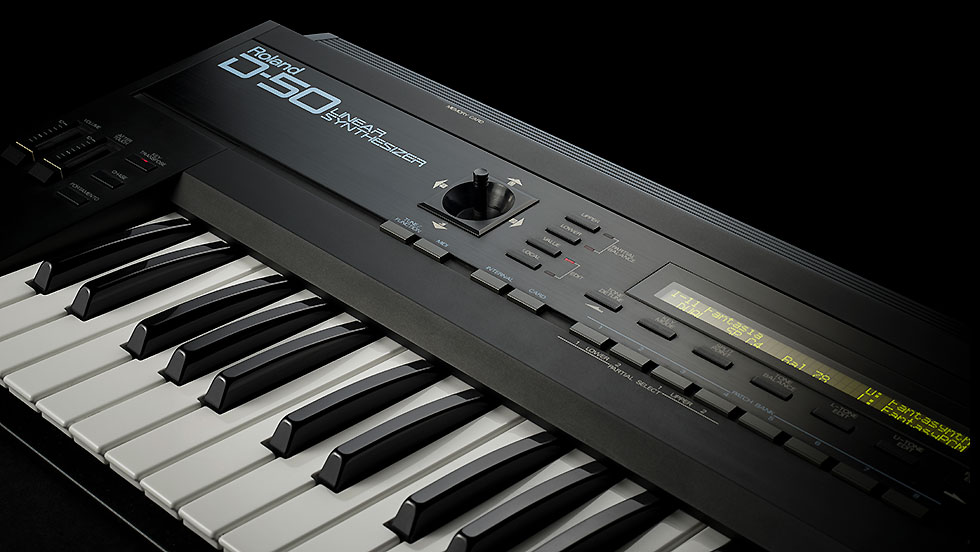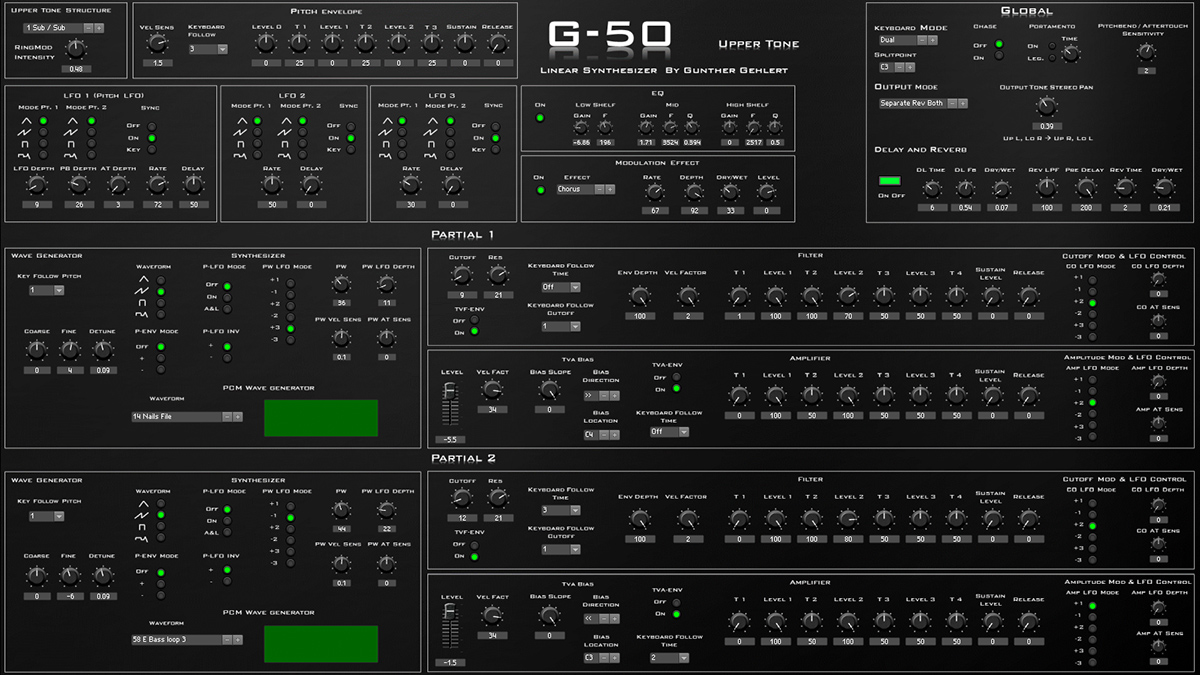6 unofficial ROMpler emulation plugins that bring classic ‘80s and ‘90s PCM sounds to your DAW
If you yearn for the days of the Yamaha SY85, can’t get enough of old E-MUs or want to get your Kawai kicks for free, read on

Connoisseurs of classic ‘80s and ‘90s sounds have been spoiled over the past few years thanks to an influx of virtual instruments based on classic PCM-based sound modules and workstations.
Official products such as Korg’s Triton and Roland’s JD-800 plugins have delighted producers looking for vintage sample-based sounds, but there are still many legendary synths of this type that haven’t yet been brought to the digital realm.
Thankfully, there are a few courageous developers releasing top-notch virtual versions of previously overlooked sound modules and workstations, many of whom are offering their wares as free or pay-what-you-want downloads.
So, let’s check out some of these beautifully-crafted retro recreations, and bask in the scintillating, sample-based sounds of the late 20th century.
1. Meat Beats Orbhits
A simple yet extremely effective virtual version of the E-MU Orbit 9090 from 1996, Meat Beats Orbhits doesn’t recreate the original sound module’s synth architecture, but rather features sampled versions of Orbit sounds.
While this might be a more serious issue for other synths, most Orbit users eschewed programming their own patches on it anyway, thanks to its small LCD and minimal five-button interface.
You can hear the lush, futuristic pad sounds of the Orbit 9090 in all kinds of late ‘90s and early ‘00s media. Arguably its greatest claim to fame is being largely responsible for the Sony PlayStation 2’s boot-up jingle, which is based on the syn:1KeyRush preset.
Get the MusicRadar Newsletter
Want all the hottest music and gear news, reviews, deals, features and more, direct to your inbox? Sign up here.
The very next preset, syn:1KeyStack, can be heard throughout the chilled drum ‘n’ bass classic Revival by Blame, and plenty more lush pads and atmospheric lead sounds can be coaxed out of the golden-hued rack.
Meat Beats’ plugin version is stripped-back affair. Its small interface offers arrow buttons to cycle through the available presets, the ability to jump to any preset via a menu, a master volume knob, amplitude envelope attack and release controls, a pitch modulation amount, and a single-parameter reverb effect. Bare-bones, but nothing that really reduces the synth’s usability.
More seriously, the synth doesn’t recreate all its inspiration’s patches, and its samples aren’t looped, which is an inconvenience for longer, sustained sounds.
Nevertheless, Orbhits is a great deal thanks to its pay-what-you-want price tag, and Meat Beats offers some other similarly useful sound module-style plugins in the form of Micro Keys and Micro Piano.
2. Digital Systemic Emulations Emulator I
Another E-MU recreation, this freeware plugin version of 1981’s Emulator sampling keyboard again focuses more on the sounds included with the original hardware, rather than its editing and programming functionality.
Don’t let that put you off, though, as the 58 classic samples included with this synth are a real trip down memory lane for fans of early ‘80s electronic music. The Emulator was used by luminaries such as Tangerine Dream, New Order and Vangelis.
Indeed, you may recognise the Emulator I’s Reageae Groove and Reageae Trumpet presets from the Greek maestro’s Blade Runner score, specifically the Taffey Lewis bar scene. Interestingly, these are likely uncleared samples, sourced from Rat a Cut Dub by Lion Youth and Concierto de Aranjuez: Adagio by Miles Davis respectively
While the Emulator I’s architecture doesn’t perfectly replicate the hardware original’s, it does offer a single-mode resonant filter with ADSR envelope, amplitude ADSR envelope with volume control, an LFO that can be routed to both the filter cutoff frequency and pitch, a chorus effect, poly mode toggle, and a master turning control.
3. Nils‘ K1v
Now for something much more involved: programmer Nils Schneider has recreated the Kawai K1 synth from 1988 in glorious software form. We’re not just talking about meticulous sampling here: Nils has built his virtual K1 from the ground up to be practically identical to the hardware version, featuring all the original’s parameters and even the ability to utilise K1 SysEx messages.
With some excellent presets to work your way through and advanced features such as Amplitude Modulation and vector synthesis-style sound source mixing, K1v is something sample-based synthesis fans can really get their teeth into. What’s more, it’s being well-supported and Nils is even working on a plugin version of Kawai’s more advanced K4 synth, though at the time of writing he hasn’t blogged about this since 2021.
If you’re a fan of this fantastic freebie, you can donate to Nils via a tastefully subtle button on the K1v’s interface.
4. Gunther Gehlert G-50

Gunther likes to do things a little differently, and his Reaktor-based emulation of the Roland D-50 from 1987 recreates the synth’s architecture to a T, though this time the original PCM waveforms are nowhere to be seen. According to Gunther’s comments on the product page this is to avoid licensing issues, and instead of using the D-50’s original sounds he’s created his own versions using licence-free samples.
So, not ideal for those after a perfect D-50 clone - perhaps to create the perfect cover of Enya’s slamming Orinoco Flow, for instance - but thankfully, Roland Cloud, offers an official version complete with the original presets anyway.
Still, the G-50 is still an intriguing prospect, and perfect for creating ‘80s digital tones with a unique spin on them. The downside? You’ll need the full version of Reaktor 6 to use it, though the G-50 ensemble itself is free.
5. Arturia SQ80 V
Moving on to commercial products, Arturia has created excellent plugin versions of many sampled-based products such as the CMI Fairlight and Ferris Bueller’s fave, the E-mu Emulator II.
Its latest escapade into vintage digital synths, the SQ80 V, is a virtual take on the Ensoniq SQ-80, a digital synth from 1987 used by John Carpenter on the soundtrack to his documentary film, They Live.
The SQ-80 used short digital waveforms, and was quickly outclassed by full-on sample-based synths such as the Roland D-50 and Korg M1, but for lo-fi digital fun it's got a charm all of its own. The Arturia SQ80 V can be picked up for $199.
6. Gospel Musicians TGX-85
A contemporary recreation of 1992’s Yamaha SY85 workstation (also available as the TG500 sound module), the TGX-85 is a relatively faithful sample-based adaptation that tweaks a few of the presets to make them more playable for today’s keyboard warriors.
While the effects aren’t identical to the original hardware’s, lovers of workstation-style sounds will find tons of useful goodies amongst the 384 included presets, especially if they’re into crystalline electric pianos and analogue brass.
Also available for the same RRP of $150 is Gospel Musicians' The Blue Beast, a plugin version of the Yamaha EX5 / RX5R from 1998. Being sample-based, it doesn’t include the same Formulated Digital Signal Processing algorithms as the original synth, but if you’re into polished late ‘90s sounds it's well worth investigating.


“The included sample content is not only unique but sonically amazing, as it always was”: Spitfire Audio BBC Radiophonic Workshop review
“We were able to fire up a bass sound that was indistinguishable from the flavour of New Order’s Blue Monday in seconds”: EastWest Sounds Iconic review









